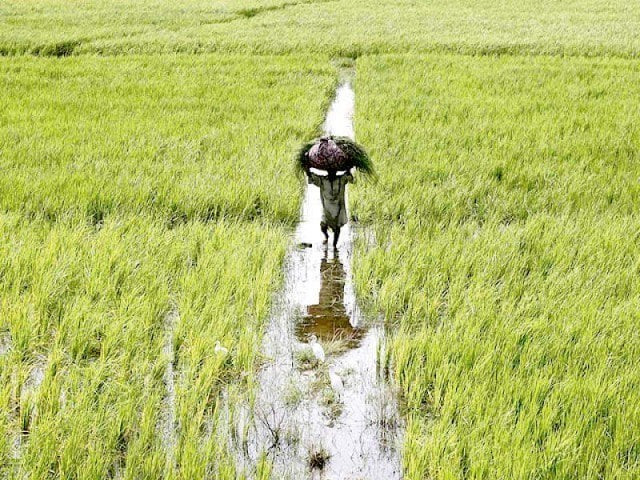Farmers need level playing field to compete globally
Recommendations for boosting agri-sector include subsidies, tax break, support price

PHOTO: FILE
Latest data indicates a shortfall in the cotton production target of 15 million bales for the ongoing crop season.
Apart from the revenue loss, a huge amount will be spent by the country on cotton import from different countries to make up for the shortfall. The decline in production was primarily due to poor decision-making and absence of cotton support price.
In this regard, the farmers met Chief of Army Staff General Qamar Javed Bajwa and asked for support to steer the ailing sector out of crisis. They looked for help in implementing the recommendations made by the agriculture sector stakeholders and Pakistan's top economic think tanks for giving a boost to the sector.
The recommendations were presented to the army chief at a seminar organised by the National Defence University (NDU).
Pakistan Kissan Ittehad President Khalid Khokhar said on Friday the army chief had assured them of making all-out efforts to save the sector and convey their grievances to the prime minister.
After successive consultations, NDU had presented its recommendations on agriculture, large-scale industries and small and medium enterprises to the army chief last month.
As per the document available with The Express Tribune, recommendations for the agriculture sector included extension in subsidy support for farmers so they can purchase farm inputs, like $50 per annum per farmer, blanket tax exemption, subsidy on fertilisers, seeds, energy and water for irrigation, low interest loans, cheap crop insurance, high tariffs to block food imports and price support for more than 20 crops.
"This will provide a level playing field to Pakistani farmers, enabling them to compete with Indian farmers in the global market," according to the document.
It was noted that the government gave no relief to the average farmer in the FY20 budget as it raised the 2% tax on value addition in the fertiliser sector by a further 3% instead of waiving it. It was recommended that all taxes on farm inputs be reduced to a minimum.
The document suggested timely announcement of cotton support price to ensure profit for the growers as the only buyer of cotton - the textile industry - had monopolised the market and suppressed prices far below international rates.
"Pakistan also needs to ensure price regulation of its products as the farmers are not given their due share in line with international standards."
The document called for introducing indigenous technology in the field of agriculture and introduction of subsidy schemes by federal and provincial governments.
"India got the technology from Israel and tailoured it accordingly; Pakistan needs another green revolution and mechanisation because manual sowing is impossible on a large scale."
It was noted that research and development in agriculture was almost non-existent. People who run agriculture departments have no expertise in the field. Research centres are under-equipped due to limited financial assistance.
The findings suggested that "the government should enhance R&D expenditure from 0.2% to 2% of agri-GDP. In addition, farm budget should be allocated to agricultural universities."
It was noted that value addition was a process of increasing economic value and consumer appeal of an agricultural commodity. However in Pakistan, the main challenges facing the agro-processing industry are post-harvest losses due to lack of storage and transportation, inability to supply raw material, absence of cold chain facilities and other such factors.
It was recommended to set up processing plants at production sites in order to reduce transportation costs. "Government must encourage the setting up of processing plants through tariff incentives, accelerated depreciation of 100% and through turnover tax."
The role of middleman was another critical issue as without the middleman's credit, over 80% of farmers would not be able to buy seeds and fertilisers. However, this promoted black marketing, duplicate products and sale of expired goods.
The document urged the government to ensure easy availability of seeds, fertilisers and pesticides for farmers.
The NDU recommendations also called for framing a new marketing policy to cope with the challenge of new markets with special focus on streamlining the role of middlemen and introducing regulations, which limit the margins.
Published in The Express Tribune, October 5th, 2019.
Like Business on Facebook, follow @TribuneBiz on Twitter to stay informed and join in the conversation.



















COMMENTS
Comments are moderated and generally will be posted if they are on-topic and not abusive.
For more information, please see our Comments FAQ